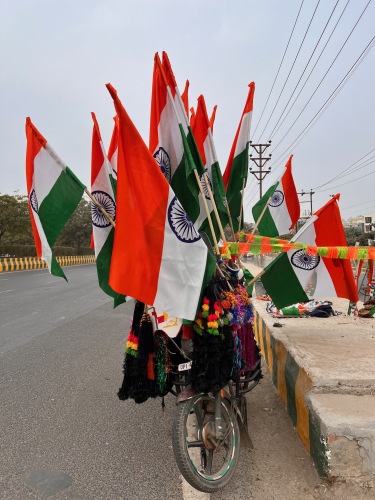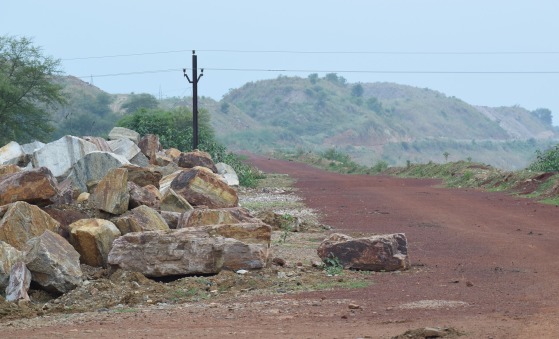
The Rashtriya Swayamsevak Sangh (RSS) has found itself at the centre of controversy following revelations about lobbying activities in the United States. An investigation by news outlet Prism, published on 12 November, uncovered official disclosures filed with the US Senate pointing to a significant lobbying effort on behalf of the organisation.
According to lobbying disclosures, Squire Patton Boggs, one of the top lobbying firms in the United States, registered as a lobbyist for the RSS on 16 January 2025. The firm received payments totalling $330,000 during the first three quarters of 2025 for work linked to the RSS. This marks the first time the RSS has hired lobbyists in the United States, according to public records.
On 3 March, State Street Strategies hired Squire Patton Boggs to lobby on behalf of the RSS, with a particular focus on promoting US-India bilateral relations. The lobbying documents do not list the RSS as the direct client but rather State Street Strategies doing business as the lobbying firm One+ Strategies on behalf of the RSS.
The paperwork lists four lobbyists: Bradford Ellison, Ludmilla Kasulke, Bill Shuster, and Rebekah Sungala. Ellison and Kasulke have previously lobbied Congress on behalf of foreign governments, with Ellison representing Ethiopia and Benin, whilst Kasulke has represented South Korea and the umbrella organisation for the Syrian opposition. Shuster served as a Republican congressman from Pennsylvania from 2001 to 2019, and Sungala was a congressional staffer in his office. Bill Shuster’s brother Bob Shuster is a co-founder of One+ Strategies.
Three payments were made to Squire Patton Boggs since the contract was signed. The first payment of $120,000 was disclosed on 15 April, the second payment of $100,000 on 11 July, and the third payment of $110,000 on 16 October.
On the same day the lobbying registration was filed, 16 January, Bradford Ellison contacted Audrey Truschke, a historian at Rutgers University who has extensively researched the Hindu right. In an email obtained by Prism, Ellison wrote that the team was “recently retained by Rashtriya Swayamsevak Sangh (RSS) to educate lawmakers about RSS’s mission and impact”. When Truschke asked about their status under the Foreign Agents Registration Act for advocacy work, she never heard back.
In June, the Shuster brothers and Ellison were amongst the guests at an RSS event in Nagpur, India, where the group is headquartered. The lobbyists visited an RSS training camp and met with members, according to an article in an RSS publication. Also part of the delegation were Walter Russell Mead, a columnist at The Wall Street Journal, and Bill Drexel, a think tank specialist on US-India relations. Both are fellows at the Hudson Institute, a right-wing think tank based in Washington, DC.
Massachusetts-based pharmaceutical executive Vivek Sharma was also listed in the lobbying registration as “an entity other than the client that contributes more than $5,000 to the lobbying activities” and either participates in or supervises the lobbying activities. Sharma is the executive chair of Cohance Lifesciences, a drug manufacturer based in Boston with major operations in India. He has been listed as a mentor of Ekal Vidyalaya, a US-based nonprofit that reportedly has links to the Sangh Parivar.
In the lobbying registration form, the general lobbying issue is noted as foreign relations, with the specific lobbying issue listed as “U.S.-India bilateral relations”. In subsequent quarterly filings, the specific lobbying issue changed to “introduce the Rashtriya Swayamsevak Sangh (RSS) to U.S. officials”.
The day after Prism published its investigation on 12 November, RSS spokesperson Sunil Ambekar posted on X: “Rashtriya Swayamsevak Sangh works in Bharat and has not engaged any lobbying firm in United States of America”. A week later, the RSS publication Organiser published an article claiming the “RSS’s outreach is fully disclosed under LDA”. However, after one of the Prism reporters posted about this article on X, it was taken down.
Foreign influence experts have raised serious concerns about the registration method used. The lobbying work was registered under the Lobbying Disclosure Act of 1995 rather than the Foreign Agents Registration Act. Ben Freeman, director of the Democratising Foreign Policy programme at the Quincy Institute for Responsible Statecraft, told Prism: “Registering under the LDA and not FARA really keeps this influence campaign in the shadows”.
Three experts on foreign influence in US politics told Prism that per lobbying regulations, the RSS would be considered a foreign entity and Squire Patton Boggs should be registered as a foreign agent for the RSS. James Thurber, distinguished professor of government emeritus at American University, stated: “My conclusion is that ‘U.S.-India bilateral relations’ is within the FARA rules. RSS should have been registered under FARA instead”.
Dan Auble, a senior researcher at OpenSecrets, told Prism that according to LDA guidelines published by Congress, the RSS should disclose itself as a foreign entity. FARA requires detailed public disclosures of all meetings, communications and materials shared with officials, whereas the LDA has far less stringent requirements.
The revelation has sparked political controversy in India. Congress general secretary Jairam Ramesh alleged on 13 November that the RSS had “spent a significant amount of money to engage one of Pakistan’s official lobbying arms” to lobby on its behalf in the United States. An additional point of contention emerged from the fact that Squire Patton Boggs was subcontracted earlier this year by Orchid Advisers LLC, hired by the Pakistani government, with around 50 per cent of Pakistan’s $250,000 monthly fee going to Squire Patton Boggs. The second and third quarterly payments to Squire Patton Boggs for RSS work were made after the contract with Pakistan was registered with the US Department of Justice and after the Pahalgam terrorist attack in Jammu and Kashmir.
The CPI(M) questioned why Prime Minister Narendra Modi remained silent over the allegations and asked why the Enforcement Directorate and Income Tax Department were not investigating the matter.
Former bureaucrat E.A.S. Sarma wrote to the Union revenue secretary raising questions about the source of funding, noting it is “surprising” that RSS, which is not registered in India and is funded exclusively by donations or “Guru Dakshina” made by its members, should be in a position to pay $330,000 for lobbying efforts in the United States.
Neither Squire Patton Boggs, One+ Strategies, nor any of the lobbyists named responded to requests for comment from multiple news organisations.




